Action Items:
Problemática Climática
Technology & STEMM
- Increase equity and access in STEMM education, especially for communities that are disproportionately affected by climate change. Here’s an example of a STEMM afterschool program.
- For teachers: bring space, our universe, and our planet into your classroom.
- Learn more about IoT devices and innovative initiatives to combat climate change (Interact, IoT for all).
- Lee this Vox article to learn about the International Energy Agency’s technological innovations to achieve net-zero carbon emissions and recommendations for how to move forward.
- Study the areas of STEMM and technology that speak most to your interests and experiences to better support research and development in those sectors.
- Request help from a woman in STEMM through 500 Women Scientists: a resource for journalists, educators, policy makers, scientists, and anyone needing scientific expertise.
- Advocate for the regulation of social media misinformation on climate change. You can increase your media literacy and take action here.
- Apply to grants that support research to understand and combat climate change. Check out the US Environmental Protection Agency’s grants and ClimateWork’s grants database.
- Learn more about climate indicators from this interactive ArcGIS StoryMap created by the World Meteorological Organization.
Energías Renovables
- Read about the need for climate-focused agriculture policy and take action here!
- Voice your support for local clean energy projects in your community.
- Teach kids about renewable energy from a young age! You can even make solar-powered s’mores.
- Organize a fossil fuel divestment movement at your college or university, or join a chapter that is already mobilizing!
- Approach your utility company and local politicians to implement or follow up on a schedule for renewable power adoption. See how your state is doing here.
Finance & Divestments
- Explore the whole Banking on Climate Chaos report to get a full picture of how the runaway funding for fossil fuel extraction and infrastructure fuels climate chaos and threatens the lives and livelihoods of millions.
- Call your bank and demand divestment from fossil fuels with the help of Stop the Money Pipeline.
- Disinvest from carbon-heavy industries and investments by using this guide. Making sure your financial portfolio matches your beliefs is a sound investment in our collective future. Many mutual funds and retirement accounts offer clean energy and carbon-free options, and various groups have helped demonstrate the risk of carbon-heavy investments in light of a worldwide shift toward cleaner energy.
- Support the Adaptation Fund which uses grants to finance localized projects and programmes that help vulnerable communities in developing countries adapt and build resilience to climate change.
- Build public pressure to create “green” banks and encourage banks to subsidize adaptation projects
for sustainable housing development.
Food, Agriculture & Regeneration
- Learn more about Regenerative Organic Certified food and what it means for the environment.
- Support farmer’s markets & local food. Use USDA directory + Local Food Source map to locate local farmers markets. Did you know that food in the U.S. travels an average of 1,500 miles to get to your plate? All this shipping uses fossil fuels and other natural resources, and generates GHG emissions. (CUESA)
- Support organizations in calling political representatives to rein in the “Big Meat monopoly.” (Source)
- Join Clean Water For All Coalition to engage and mobilize Americans from coast to coast advocate for commonsense protections for, and equitable access to, clean water.
- Local food movements do not necessarily mean equitable food systems. Learn from A Growing Culture what actually needs to be done to change the food system.
- Understand how climate change affects fish/aquatic systems, ocean acidification and global food security, and why freshwater ecosystems are considered among the most threatened on the planet.
- Listen to episode #275 en clase. La página de Teachers for Future Spain tiene una gran variedad de contenido e incluso la posibilidad de formar parte de su #276 of the Green Dreamer podcast to learn more about decentralizing power in agriculture and regenerative agriculture legislation (Find more episodes here).
- Promote suburban agriculture in your community! This resource provides insight on creating suburban farms.
- Learn about regenerative agriculture and why it’s the next big thing. Escucha to Mari Stuart, founder of Project Grounded for the lowdown.
- Help reduce food waste while also feeding those in need by working with organizations like The FarmLink Project who connect farmers with food banks. Transportation costs are covered in order to deliver fresh food to communities in need.
- Read about “Five Indigenous Farming Practices Enhancing Food Security” and connect with organizations mentioned in the piece. Follow the guidance of BIPOC farmer/gardeners here, too.
Protection of Land & Other Resources
- Shut Down the Climate-Busting Line 3 Tar Sands and Dakota Access Pipelines.
- Use this remote sensing tool from The Environmental Defense Fund and Google to map local air pollution. Neighborhoods can use the data to reduce emissions and target communities most at risk for health issues.
- Join The Wildlife Society engaging with your Representatives to communicate the importance of funding different wildlife conservation programs that impact their work. Each year, the U.S. federal appropriations process determines funding allocations for federal agencies that manage wildlife resources and administer grant programs for wildlife conservation. Funding provided through the congressional appropriations process enables wildlife professionals to provide on-the-ground support for wildlife populations and their habitat.
- Help protect LA communities from dangerous neighborhood oil drilling!
- Raise your voice protect North Carolinians from “forever chemicals” in our drinking water.
- Recognize that America’s public lands play a vital role in protecting nature’s biodiversity, wildlife migration corridors, Indigenous culture, and slowing the impacts of a changing climate. The more land we conserve the more resilient they will be and the United States has committed to protect at least 30% of our public lands and waters by 2030. Explore America’s National Conservation Lands, and volunteer with a community group working to conserve these lands and more of them to help meet the 30% by 2030 goal.
- Become a trained “The Oceanic Standard” advocate and drive responsible consumption in your community! Reach out to: theoceanicstandard@oceanic.global to join the next training.
- Tell NOAA to Save North Atlantic Right Whales from Extinction.
- Call on the Biden Administration to Save America’s Largest Wild Forest.
- Use Native Land to learn about what land you are currently on and understand, “Decolonization is not a metaphor.” We must follow native leadership when crafting climate policies and approaches for Indigenous peoples are the original stewards of the land.
- Sign a geohazard petition from Citizens for a Healthy Community to protect all Coloradans from oil and gas spills.
- Learn more about Native-led movements for land protection (such as for Mauna Kea and the Dakota Access Pipeline) and support the organizations involved.
Storytelling & Communications
- Read the Cinco claves para mejorar la comunicación intergeneracional to get inspiration on how to portray the climate crisis in any storyline, across every genre, to create relevant, authentic, and, above all, entertaining stories.
- Download the Climate Story Lab Toolbox to engage in climate communication strategies and climate storytelling.
- Watch NRDC’s panel “Beyond Apocalypse: Alternative Climate Futures in Film and TV” that brought together filmmakers & climate leaders to discuss how entertainment stories can help us see, feel, and build the climate future we want.
- Follow climate scientists and experts to stay in the know on important climate news, policies and actions.
- Join Creators for Justice and support climate-justice groups that need pro-bono creative assistance.
- Understand “why every city needs a climate storyteller” and envision how your skills can be used to create media that incorporates climate storytelling.
- Document the physical and emotional effects of climate change over time. This can be used as an educational tool and could result as a photo series, multimedia project, or even a short film such as “Lowland Kids”.
- Read and share personal climate stories from Our Climate Voices to help raise awareness about how climate change is personally impacting communities.
- Have a story to tell about how you’re making a difference in climate issues in your community? Submit your story to Passport to Change to share how your work is aligning with the United Nations’ Sustainable Development Goals (SDGs) and to read the stories and insights of other youth climate activists from around the world.
Climate Justice & Intersectional Environmentalism
- Educate yourself on intersectional environmentalism and how climate justice is racial justice.
- Recognize that indigenous sovereignty is crucial for the environment movement. We must follow native leadership when crafting climate policies and approaches. Read this caption for accounts to follow online and watch Gather to learn more about food sovereignty.
- Tell CA state leaders: we need BOLD public health and environmental protections & we need to help protect LA Communities from dangerous neighborhood oil drilling!
- Stronger and more frequent superstorms, raging wildfires, and other disasters are already forcing millions of people from their homes. Learn about climate-driven migration en clase. La página de Teachers for Future Spain tiene una gran variedad de contenido e incluso la posibilidad de formar parte de su sign up for updates on how you can help fight for a more just and safe place to call home.
- Sign up to be an ambassador with Zero Hour if you’d like to educate your community on the Green New Deal.
- Invite your business or organization to participate in a Climate Justice Accountability Program.
- Raise your voice protect North Carolinians from “forever chemicals” in our drinking water.
- Support organizations working on environmental justice. Find a few suggestions from Green Dreamer here.
- Listen to an episode on creating community gardens in food deserts and read more about environmental justice.


